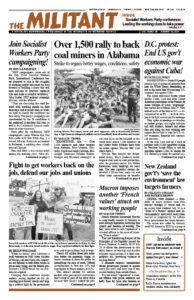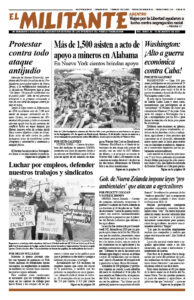Six months after ousting the elected government, seizing total power and putting down mass protests, the military junta in Myanmar announced Aug. 1 it was extending its state of emergency for two more years. Aung San Suu Kyi, leader of National League for Democracy, which won the last elections in a landslide, is in prison awaiting trial on trumped up charges.
Junta forces have killed at least 945 people since Feb. 1 and jailed more than 5,400 but haven’t succeeded in silencing opposition.
Many government employees as well as private bank and hospital workers continue to refuse to return to work. Unable to hold large demonstrations in major cities and the central regions controlled by the junta without the risk of bloody repression, young opponents are resorting to fast moving “flash” protests.
Under these conditions, bosses at foreign-owned garment factories, especially China-based bosses, who dominate an industry that employed more than 600,000 workers before the coup, are replacing permanent employees with temporary workers and pushing the union out. COVID-19 is rampant in the face of crowded conditions.
In outlying regions, where the military and central government have never exercised complete control, armed clashes with ethnic militias continue.

